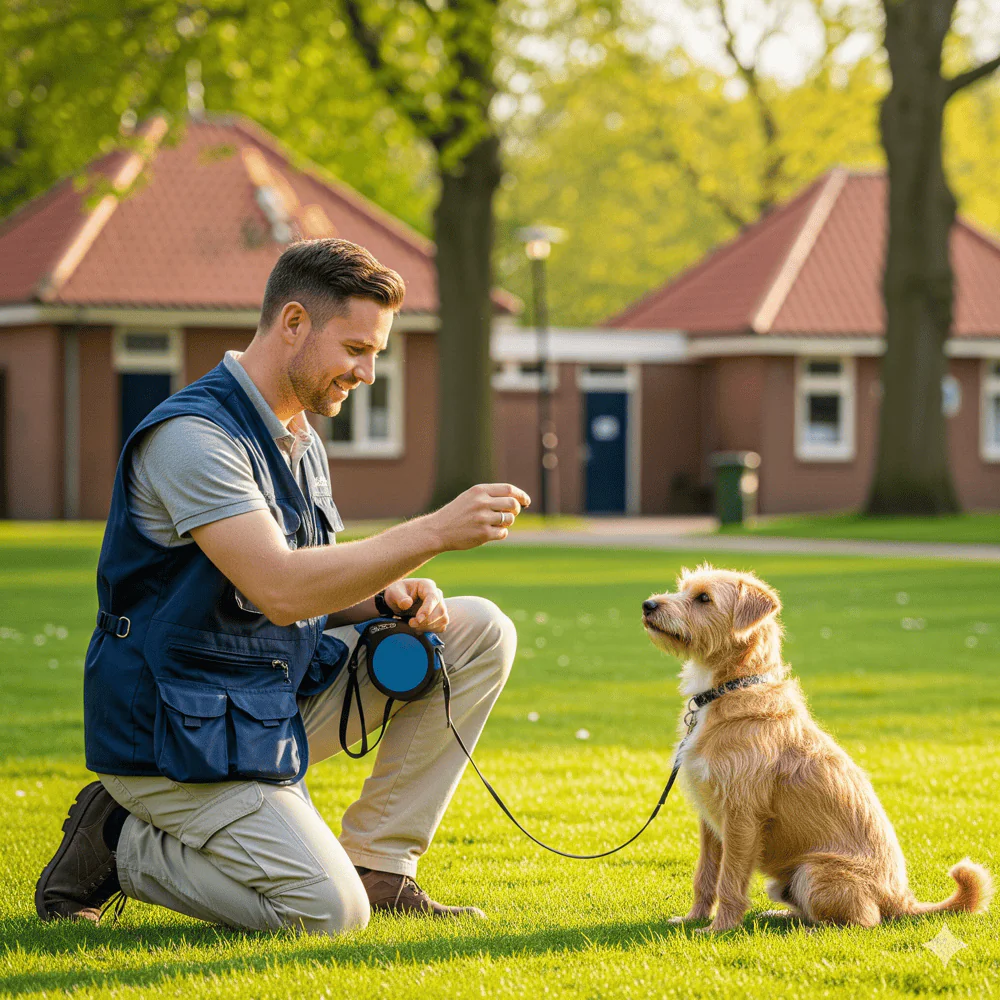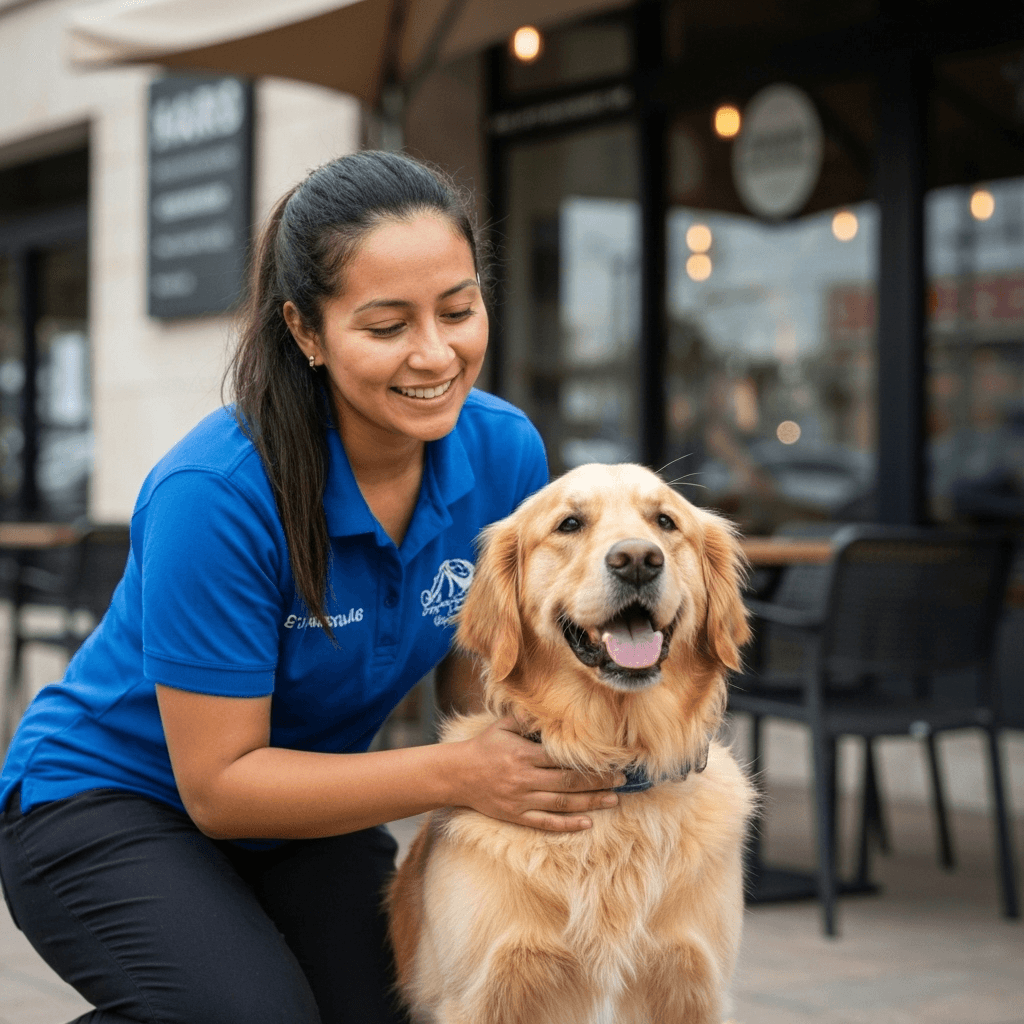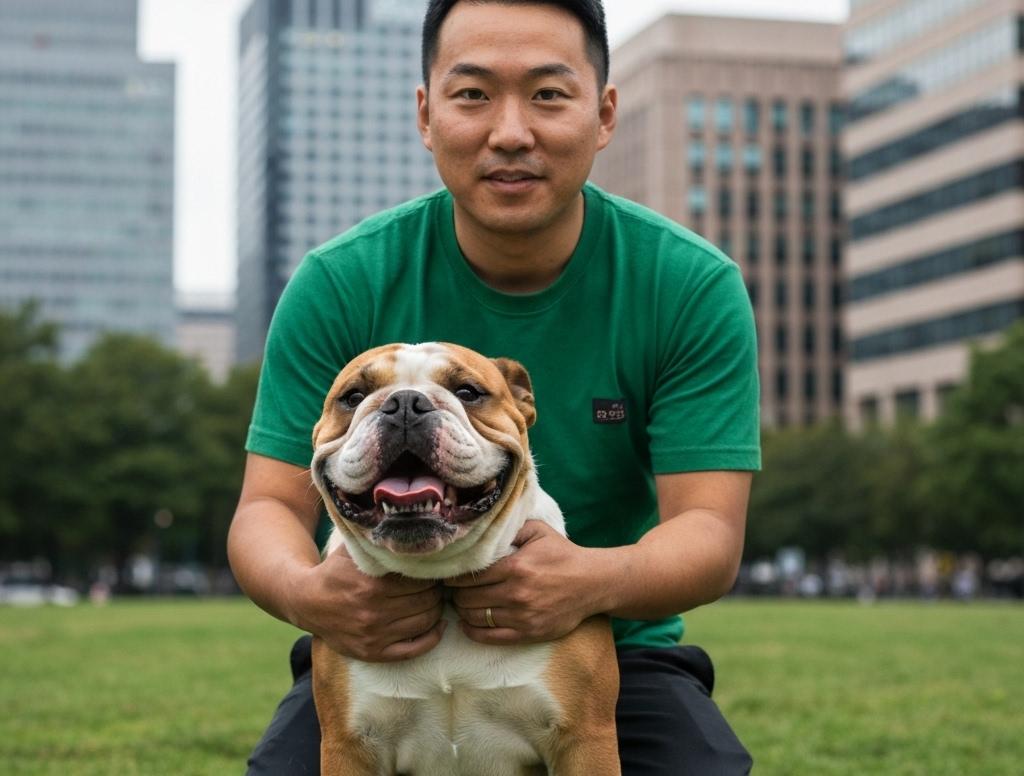Your Complete Guide to Choosing a Dog Trainer in Conroe
If you’ve ever walked your dog through downtown Conroe or tried to enjoy a peaceful evening at one of the lakeside restaurants, you know how much easier life is with a well-trained pup. Living here means your dog needs to handle everything from busy farmers market crowds to quiet neighborhood strolls, and the right training makes all the difference.
Finding a good trainer in our area isn’t just about teaching your dog to sit and stay. It’s about finding someone who understands what daily life looks like in Conroe and can help your dog succeed in real situations you’ll actually face.
How to Choose the Right Trainer
The best trainers in Conroe understand our local lifestyle. Your dog needs to walk calmly past other dogs on the popular trails around town, stay relaxed when kids run by at the park, and maybe even join you for a meal on one of those dog-friendly patios downtown.
Start by asking about their training methods. Good trainers use positive, reward-based approaches that build your dog’s confidence instead of breaking it down. These methods work better long-term and create dogs who want to please you, not dogs who obey out of fear.
When you’re comparing trainers, look for solid credentials. Many excellent trainers hold certifications like CPDT-KA, KPA-CTP, IAABC-CDBC, or CBCC-KA. You can learn more about what these dog trainer certifications mean and why they matter.
A good trainer will also customize their approach to your specific situation. If you have a new puppy, you’ll focus on housebreaking and socialization. If you’re dealing with an adult dog who pulls on walks or barks at other dogs, you’ll need a different game plan entirely.
Pay attention to how they plan to introduce distractions. The best trainers start simple in your living room, then gradually work up to busier environments. They won’t throw you into the deep end at Carl Barton Jr. Park on a Saturday afternoon until your dog is ready.
Common Dog Training Methods Explained

Positive reinforcement is the foundation of good training. When your dog does something right, they get rewarded immediately. This builds strong habits because dogs naturally repeat behaviors that get them good things.
Classical conditioning helps change how your dog feels about things that worry them. If your dog gets anxious around other dogs, a skilled trainer can help them learn to associate other dogs with good things happening. This takes time and careful planning, but it works.
Behavior modification combines these approaches to tackle bigger challenges like fear, anxiety, or aggression. For serious issues, the best trainers work alongside your veterinarian to make sure you’re covering all the bases.
Stay away from trainers who rely on intimidation, shock collars, or punishment-heavy methods. These might seem to work quickly, but they often create bigger problems down the road and can damage your relationship with your dog.
Average Cost of Dog Training in Conroe (Updated for 2025)
Training costs in Conroe and Montgomery County vary quite a bit depending on what type of help you need and how experienced your trainer is. Here’s what most local dog owners can expect to pay:
| Service Type | Typical Price (Conroe/Montgomery County) | Notes |
|---|---|---|
| Group classes (4–6 weeks) | $160 – $300 | Basic obedience or puppy fundamentals |
| Private lessons (60–75 minutes) | $95 – $175 per session | In-home often costs more than at a facility |
| Puppy packages (4–6 sessions) | $350 – $650 total | Housebreaking, crate training, puppy socialization |
| Day training (trainer works dog + handoff) | $450 – $900 per week | 2–4 sessions/week plus owner coaching |
| Board and train (2–4 weeks) | $2,000 – $4,200 total | Ask about daily structure and owner transfer sessions |
| Behavior consult (fear/reactivity) | $120 – $250 initial | Follow-ups typically at standard private rates |
Many trainers offer package deals that bring down the per-session cost. Expect to pay more if you’re dealing with complex behavioral issues or working with trainers who have advanced certifications like CTC.
Questions to Ask a Potential Dog Trainer
Before you commit to working with anyone, make sure you get clear answers to these important questions:
- What training methods do you use, and how do you keep sessions positive for my dog?
- What certifications or continuing education do you have?
- How will you customize your approach for my dog’s specific needs and our home situation?
- Where do you recommend practicing around Conroe, and how do you safely add distractions?
- What exactly is included in your training packages, and are there any extra fees?
- Do you carry liability insurance, and can you provide proof if needed?
- For behavioral problems, do you work with veterinarians when necessary?
- What will I need to practice between sessions, and how will we track progress?
Don’t be afraid to ask these questions. A good trainer will be happy to explain their approach and help you understand what you’re signing up for.
Local Conroe Resources for Dog Owners

Conroe and Montgomery County offer plenty of great spots to practice training and important services every dog owner should know about.
For information about local parks, hours, and leash requirements, check with Conroe Parks & Recreation. If you ever need help with lost pets or have questions about city requirements, Conroe Animal Control is your go-to resource.
The Montgomery County Animal Shelter provides adoption services, microchip clinics, and licensing guidance. The City of Conroe Animal Shelter welcomes all lost and surrendered pets from Conroe – no matter their age, health, breed, or species, dedicated to finding loving forever homes for every adoptable animal in their care.
While Conroe doesn’t have its own dedicated dog park, you can find several fenced off-leash areas in nearby Woodlands Township, including Bear Branch, Cattail, and Terramont parks. Check their Facilities Directory for locations and details.
For leashed training in a natural setting, the trails at W. G. Jones State Forest provide a perfect spot to practice calm behavior around mild distractions.
Remember that Texas requires all dogs to have current rabies vaccinations. You can find more information about state requirements at Texas DSHS Rabies.
When you’re out practicing, always bring waste bags, fresh water, a sturdy 6-foot leash, and small, tasty treats. Keep your dog leashed unless you’re in a designated off-leash area.
Conroe, Montgomery County, and Texas Rules That Matter
Understanding local rules helps you train more effectively and avoid problems. Leash laws require dogs to be properly restrained when they’re off your property, which makes solid leash walking skills essential for life in Conroe.
Waste cleanup is required in all city parks, so always carry bags and use them. Rabies vaccination is required by Texas law, and you should keep proof handy for group classes or boarding.
Noise ordinances mean excessive barking can lead to complaints from neighbors. Good training, proper exercise, and mental enrichment help prevent these issues before they start.
If your trainer wants to hold group classes in public parks, they may need permits and proof of insurance from the city.
Texas doesn’t require special licenses for dog trainers, but responsible professionals carry general liability insurance, especially when working in public spaces.
How Training Fits Conroe Life
Training in our area means preparing your dog for real Conroe experiences. Your dog needs to handle passing other dogs on the popular walking trails, wait patiently while you chat with neighbors, and load calmly into the car for trips to Lake Conroe.
For puppies, early exposure to the normal sounds and sights of city life prevents fearful behavior later. For adult dogs, consistent daily practice and clear household rules make the biggest difference in behavior.
If your dog struggles with reactivity around other dogs, start practicing at a distance where your dog can stay calm and focused on you. Reward good choices like checking in with you or walking on a loose leash. Gradually decrease distance over time as your dog gets more confident. Save the busiest areas for when your dog is truly ready for that level of challenge.
Dog Training in the City

FAQs
What county is Conroe in, and does that affect dog rules?
Conroe is located in Montgomery County, Texas. The county provides shelter services and resources, but your day-to-day leash laws and noise ordinances come from the City of Conroe itself.
Do trainers need special licenses in Conroe or Montgomery County?
No, Texas doesn’t license dog trainers. Instead, look for trainers with good education, experience, and professional certifications from organizations like CCPDT or KPA.
Is insurance required for dog trainers here?
It’s not legally required, but many venues require proof of liability insurance before allowing group activities. It protects everyone involved.
Where can I practice off-leash recall near Conroe?
While Conroe doesn’t have its own dog park, The Woodlands Township maintains several fenced dog parks that work great for safe off-leash practice.
What vaccinations will I need for group classes?
Most trainers require proof of current rabies vaccination, and often distemper-parvo combinations. Puppy class requirements may be different based on your pup’s age.
How long does basic obedience training usually take?
With consistent practice, most families see solid progress within 3 to 6 weeks. More complex behavioral issues like fear or aggression typically take longer and need a structured plan.
How can I verify a trainer’s background?
Ask about their training methods, experience with cases similar to yours, and continuing education. You can also research what different dog trainer certifications mean and why they matter.
The right training plan will help your dog become a confident, well-behaved companion who’s welcome wherever life in Conroe takes you both. Take time to find a trainer who understands your goals and uses methods that build your dog up instead of tearing them down.
